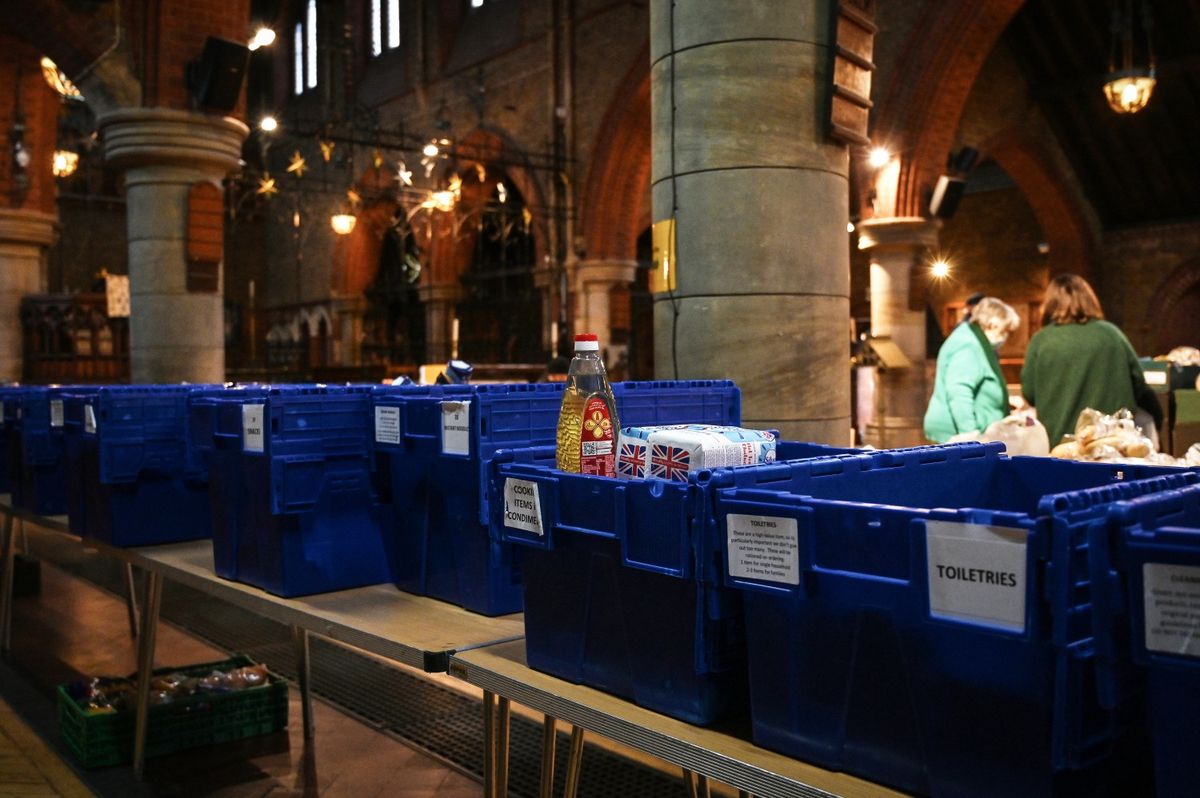By Kemi Akinola, CEO/Managing Director of Be Enriched and Brixton People's Kitchen @BeeKemiA
What is dignity? Dignity is the right of a person to be valued and respected for their own sake, and to be treated ethically. Like finding a Wikipedia definition, I believe it is easy to provide services for people on a low income in a dignified way.
Dignity when it comes to food has always been very important to me. When I was in recovery from my brain injury, with no money and fighting the DWP for the disability benefits I was entitled to, there were no options at all. In 2006 there was not even a soup kitchen within walking distance of my home. And I could barely walk and I barely ate as a result. The first recorded food bank in the UK was over 20 years ago and it wasn’t in Wandsworth.
As food banks have emerged as a response to growing poverty in the UK, the question of ‘dignity’ in food banks has been ongoing. People needing to access food banks have often reported that they didn’t go because it felt undignified – they felt devalued and disrespected by a system that had failed them. And yet, more and more food banks have opened because a growing number of people have been affected by austerity, regressive government policies and, of course, the pandemic. Access to many food banks can be restricted both in terms of eligibility and quantity of food. Referrals might involve advice and support to maximise someone’s income but they can also involve an element of ‘gatekeeping’ that impacts on a person’s dignity.
Over the first lockdown emergency food hubs, initially only for people on the clinically extremely vulnerable list, were set up by local authorities. It was decided what people would eat in a week and 14 items of food were delivered. I was part of one of these decision-making groups, so I know there wasn’t time to consult with anyone. However, once food started to be returned to us, we realised there was a problem. When people were contacted it transpired that sometimes all they needed was a box of cereal. They were being given too much food.
These days, many charitable food aid providers are seeing the food pantry or social supermarket model as a way to move away from charitable food aid. While this might be a step in the right direction, it is flawed for many reasons.
Food pantry is a term originating in the USA for a food bank. This terminology matters. In the UK, members of a food pantry usually pay a weekly fee of around £3.50 to access around £15-25 worth of food made up of surplus and donations. However, I would argue that this sets up a false economy for members and the projects delivering this. Members are not able to budget appropriately, or build personal financial resilience, as the money isn’t relative to real spend once they aren't eligible for the service. In turn, projects are usually not able to sustain their work without charitable donations and surplus food and cannot guarantee essential foods due to a reliance on an erratic food supply. Isn’t this just repackaging food banks into something ostensibly more palatable for the current political climate that conflates the problem of surplus food with the problem of food poverty? Are food pantries simply food banks in disguise?
For the past eight years, Be Enriched and Brixton People’s Kitchen have been partnered, using food as the starting point to increase community cohesion and reduce social isolation but, critically, not end hunger. We’ve delivered community cooking classes, summer activity projects and more, with community wealth, shared education and dignity at the centre of the work. For the past three years we have been looking at alternative retail models. How far would £5-£10 go if everything was wholesale price?
And so, a community or local shop has emerged. It is a shop where food is bought and sold at the lowest possible price and where available, fair-trade cost. Not only do people choose what they want, but they are building financial resilience and inevitably feel a sense of ownership. Locals pay-it -forward, a shop for others whom they know are struggling and no weekly shop needs to cost more than £5/10. The shop only stocks what is wanted or required and any surplus fruit and vegetables or cooked food is given away free top-up only if wanted. Local people can bring in food they have over-stocked and exchange these items for food or other essential items. Local bakers bake for the community and baked goods are shared through the shop with a nice cup of tea. The community garden brings in fruit, veg and herbs to share with others. Local people volunteer or work for the shop and are paid a real Living Wage. Healthy start vouchers are accepted. All this keeps the economy local. We did it in Kennington. Within 2 months there were 250 plus weekly visits, the shop was self-sustainable and making a profit that was invested back into the community. This is community food.
Where next?
Follow our work
One timely email each quarter and we'll never share your details
Find out more about our privacy policy

